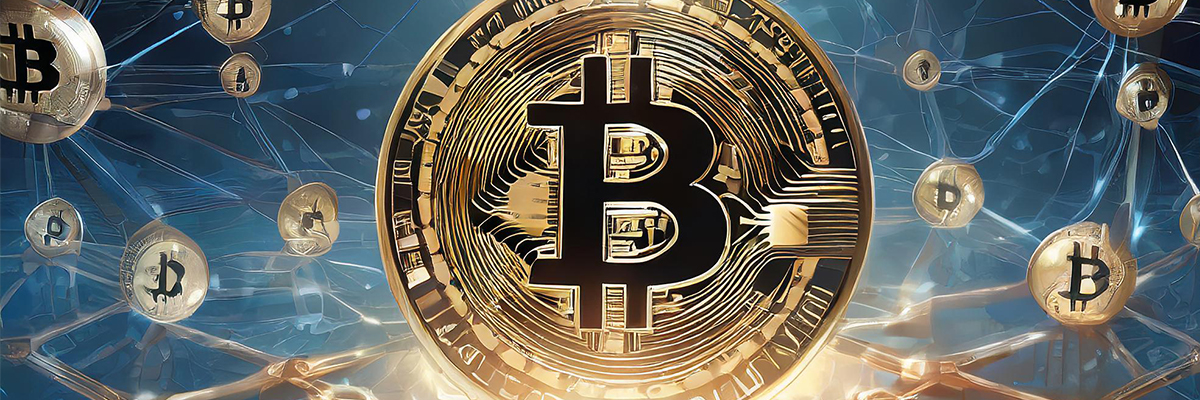
The Evolution of Social Media: Blockchain and Digital Currencies in the Spotlight
The rapid development of blockchain technology and digital currencies promises to fundamentally change the landscape of social media. In this article, we will explore the role that blockchain and digital currencies will play in creating secure and transparent social media platforms and how they could influence the monetization of content.
Security and Transparency through Blockchain
Blockchain technology promises a revolution in terms of security and transparency in social media. With its decentralized nature, blockchain provides an immutable record of all transactions and interactions that take place on a platform. This transparent and tamper-proof structure enables social media platforms to enhance the integrity of their data and strengthen user trust.
A significant advantage of blockchain is its ability to minimize the possibility of data manipulation and fraudulent activities. As data is stored in blocks that are linked and cryptographically secured, it becomes extremely difficult to alter or delete information without being detected by the entire network. This creates a transparent environment where users can be confident that the content presented to them is authentic and unaltered.
Moreover, the decentralized nature of blockchain technology enables greater independence from central authorities and intermediaries. Instead of relying on a central server or authority to verify the integrity of data, responsibility is distributed across a network of nodes that collectively monitor and validate data integrity. This reduces the risk of data corruption or manipulation by individual actors and creates a more robust and resilient infrastructure for social media.
Overall, blockchain technology offers a promising solution to the security and transparency challenges facing social media. By providing an immutable and transparent record of all interactions and reducing dependence on central authorities, blockchain has the potential to fundamentally change the social media landscape and create a safer and more trustworthy environment for users and businesses.
Identity Management and Data Privacy
In today's digital landscape, identity theft and data privacy breaches have become serious threats. However, blockchain technology offers promising solutions to address these challenges and improve identity management and data privacy in social media.
Traditionally, social media platforms rely on centralized identity management systems where users are required to disclose personal data such as names, email addresses, and birth dates. However, these central databases are vulnerable to hacks and data leaks, leading to significant security and privacy issues.
Blockchain provides an alternative, decentralized method of identity management, allowing users to securely and anonymously manage their identity without disclosing sensitive personal data. This is facilitated by the use of cryptographic keys, which enable users to authenticate their identity without revealing personal information.
Furthermore, blockchain technology enables the development of self-sovereign identity (SSI) solutions, where users have full control over their identity and associated data. These SSI solutions use digital certificates and blockchain attestations to verify the authenticity of identity information without relying on central databases. This provides a high level of data privacy and security, as users have the freedom to selectively disclose their identity based on the requirements of each interaction.
By implementing blockchain-based identity management solutions, social media platforms can significantly improve the security and privacy of their users. By reducing reliance on centralized databases and giving users more control over their identity, they can strengthen user trust and create a more trustworthy platform environment.
AD
Monetization of Content
Another crucial aspect is the monetization of content through digital currencies. Blockchain-based microtransactions enable content creators to be directly paid by their followers without relying on intermediaries such as advertising networks or payment processors. This creates new revenue streams for content creators and promotes the production of high-quality content.
Tokenization of Assets and Fan Engagement
The tokenization of assets is an exciting concept that is changing the way companies and content creators interact with their fans. This innovative application of blockchain technology allows companies to create digital assets and store them in the form of tokens on a blockchain. These tokens represent a specific value or asset and can be used for various purposes, including access to exclusive content, participation in polls, or rewarding loyal fans.
In the context of social media, tokenization of assets opens up new opportunities for fan engagement and content monetization. Companies and content creators can create digital assets that can interact directly with their community. For example, a company could issue special tokens that give holders access to exclusive events, product previews, or virtual meetings with celebrities. These tokens could then be traded on social media platforms or awarded as rewards for specific activities, further promoting fan engagement and brand loyalty.
Furthermore, tokenization of assets enables the creation of digital economies within social media. Companies can reward tokens for generating content, sharing posts, or recommending products to their followers. These tokens can then be redeemed in special marketplaces for products, services, or even fiat currencies, creating a new revenue stream for content creators.
Another important aspect of asset tokenization is the promotion of community participation and ownership. By giving companies and content creators the ability to own digital assets, they can create a sense of belonging and loyalty to the brand. Fans become active participants in the community, not only consuming content but also contributing to its creation and development.
Overall, asset tokenization offers an exciting opportunity to revolutionize fan engagement in social media. By creating digital assets and integrating them into social media, companies and content creators can tap into new revenue streams, strengthen fan loyalty, and build a vibrant and active community.
Conclusion
The integration of blockchain and digital currencies into social media platforms promises a safer, more transparent, and monetized future. By leveraging the decentralized nature of blockchain, platforms can strengthen users' trust and create new opportunities for content monetization. While the technology is still in its infancy, it is clear that it has the potential to fundamentally change the way we use social media.
AD

